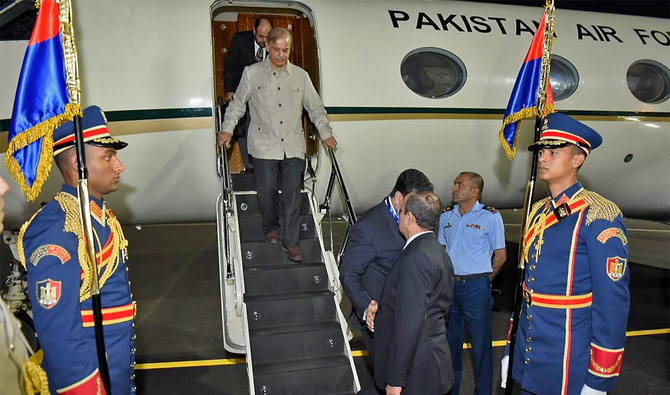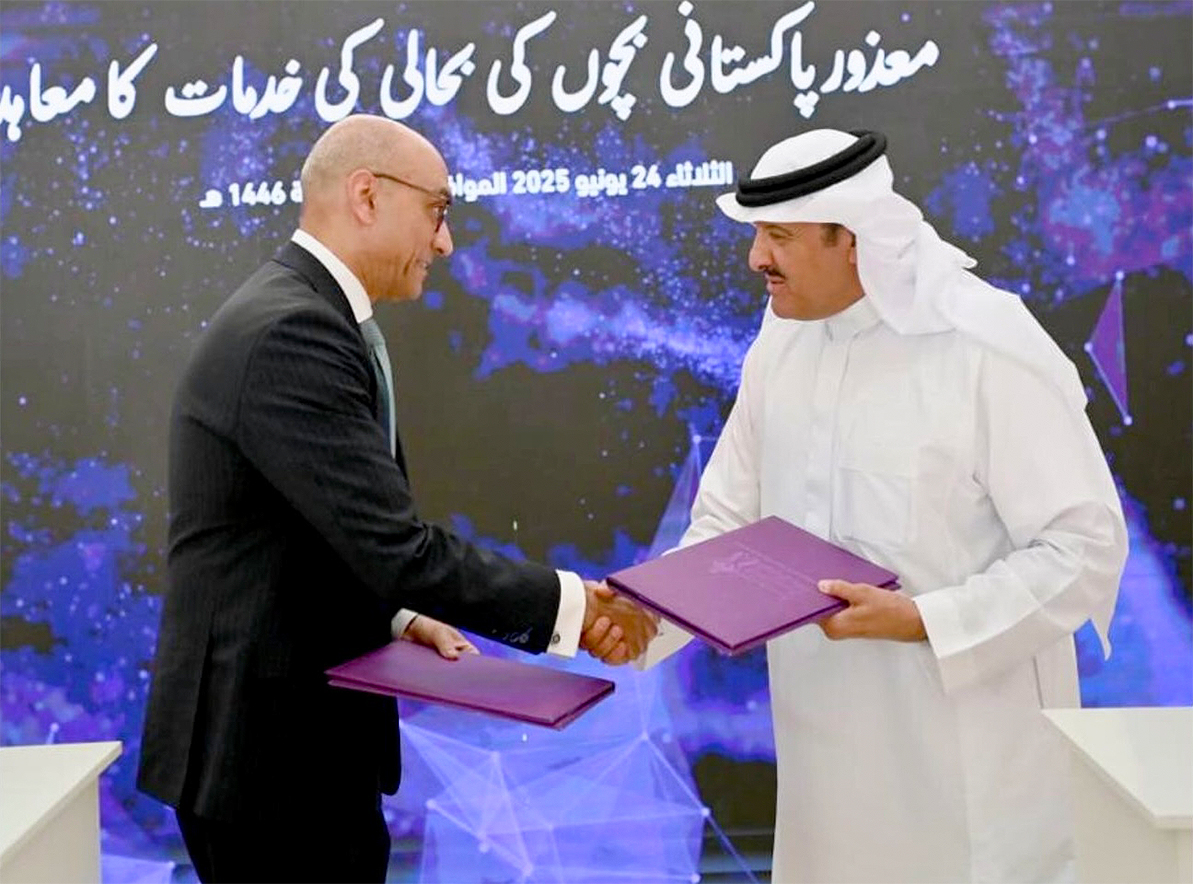ISLAMABAD: Pakistan Prime Minister Shehbaz Sharif arrived in Egypt on Sunday to attend the 2022 UN Climate Change Conference, or COP27 summit, his office confirmed, as the South Asian country seeks “climate justice” after unprecedented floods this year.
The summit kicked off Sunday in the Red Sea resort of Sharm el-Sheikh after a year of extreme weather disasters that have fueled calls for wealthy industrialized nations to compensate poorer countries.
Massive floods devastated swathes of Pakistan and Nigeria, droughts worsened in Africa and the western United States, cyclones whipped the Caribbean, and unprecedented heatwaves seared three continents.
Sharif was last month invited to co-chair COP27 by Egypt’s President Abdul Fattah El-Sisi after he ran an international campaign to raise awareness about climate change in the wake of climate-induced floods that killed over 1,700 people, affected 33 million and cost his country more than $30 billion in damages.
“As a developing country most affected by this phenomenon, Pakistan would make a robust call, inter alia, for urgency of climate solidarity and climate justice, based on the established principles of equity and common but differentiated responsibilities and respective capabilities,” Pakistan’s foreign office said in a statement.
“In its capacity as the incumbent Chair of the Group of 77 & China, which is the largest negotiating bloc of developing countries within the UN system, Pakistan would also lead the Group in the climate change negotiations; including in thematic areas such as climate finance, adaptation, mitigation, and capacity building.”
Sharif himself called the summit in Egypt a “watershed in humanity’s fight against climate change & global warming.”
“Extreme climatic events in Pakistan & Horn of Africa this year have showcased globalization of climate change,” he said in a Twitter post before flying out of Islamabad.
“Turning a blind eye to its lethal effects will be criminal.”
Wealthy nations have largely dismissed the idea of providing financial compensation to poorer countries dealing with the consequences of global warming.
Last year, rich nations blocked a proposal to form a loss and damage financing body at COP26 in Glasgow while calling for a three-year dialogue for funding discussions.
According to the foreign office, Sharif will co-chair with his Norwegian counterpart a high-level roundtable discussion on “Climate Change and the Sustainability of Vulnerable Communities” on November 8.
The Pakistan prime Minister will also participate in other high-level events as a speaker, including the UN secretary-general’s roundtable to launch the Early Warning Systems for Executive Action Plan and the “Middle East Green Initiative Summit” on November 7, hosted by Saudi Arabia’s Crown Prince Mohammed bin Salman.
The COP27 summit comes in a fraught year marked by Russia’s war on Ukraine, an energy crunch, soaring inflation and the lingering effects from the COVID-19 pandemic.
“How many more wake-up calls does the world — and world leaders — actually need,” Alok Sharma, British president of the previous COP26, said as he handed over the chairmanship to Egypt.
The world must slash greenhouse emissions 45 percent by 2030 to cap global warming at 1.5 degrees Celsius above late-19th-century levels.
Warming beyond that threshold, scientists warn, could push Earth toward an unlivable hothouse state.
But current trends would see carbon pollution increase 10 percent by the end of the decade and Earth’s surface heat up 2.8 degrees Celsius, according to findings unveiled last week.
Promises made under the 2015 Paris Agreement would, if kept, only shave off a few tenths of a degree.
The COP27 summit will focus like never before on money — a major sticking point that has soured relations between countries that got rich burning fossil fuels and the poorer ones suffering from the worst consequences of climate change.
After the first day of talks, more than 120 world leaders are expected to join the summit on Monday and Tuesday.

















